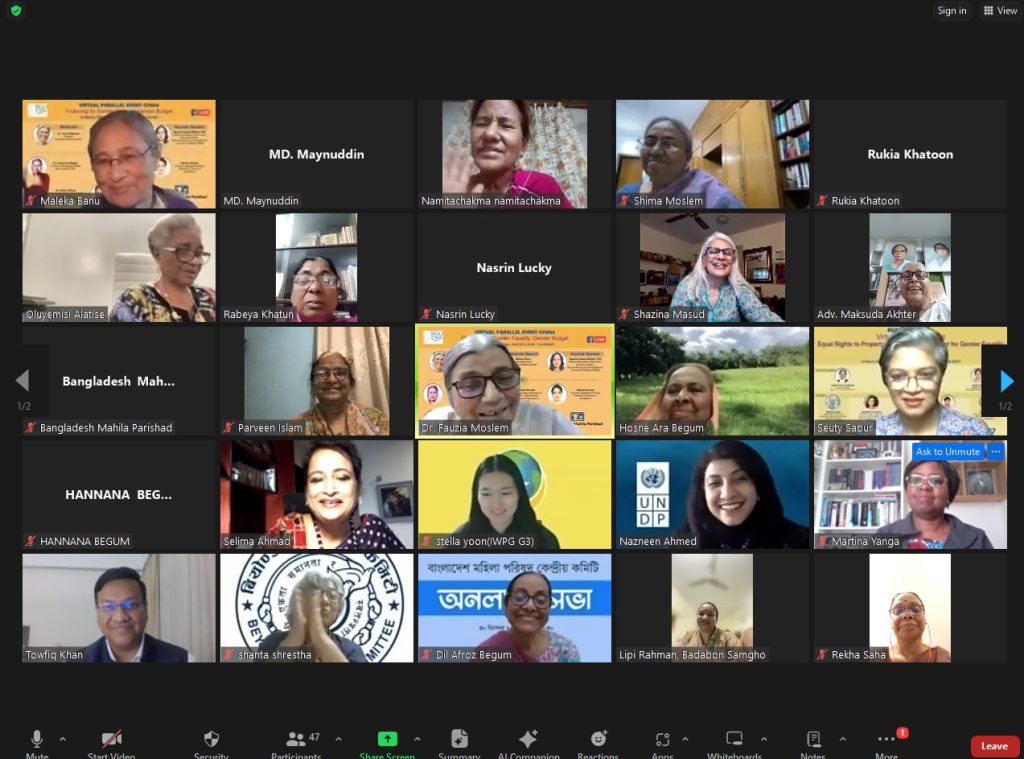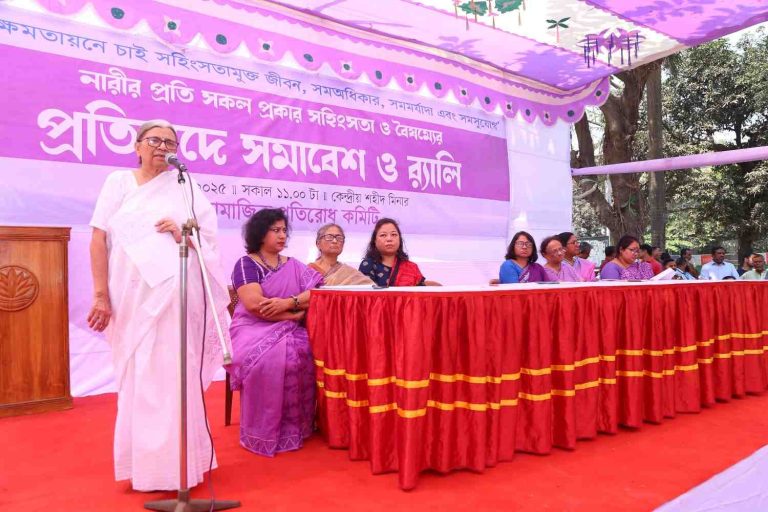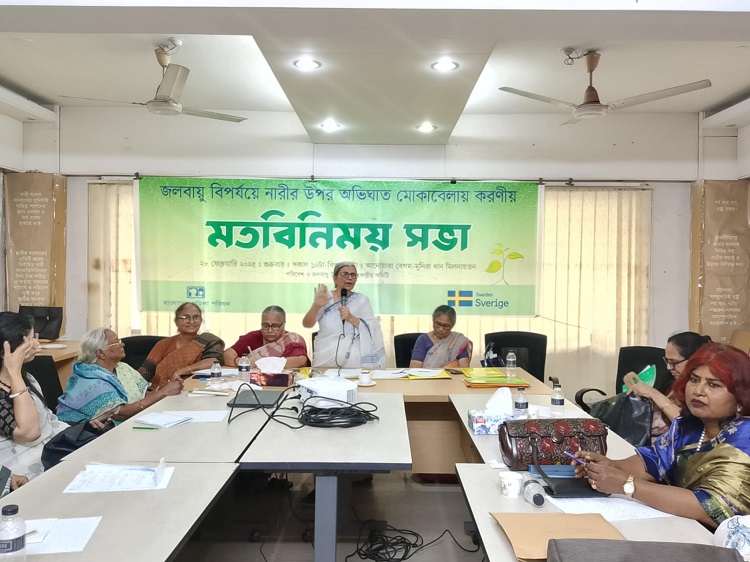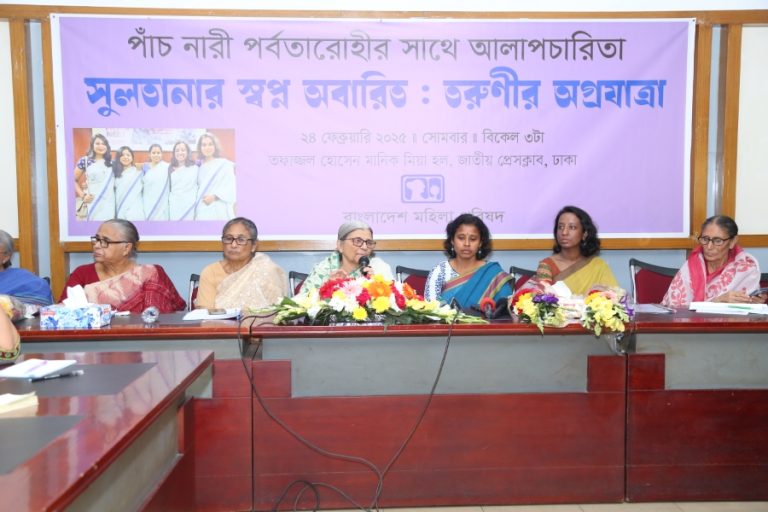To promote gender equality, Bangladesh Mahila Parishad (BMP) organized an online parallel event titled “Financing for Gender Equality: Gender Budget” at the Commission on the Status of Women (CSW) 68 session. Dr. Fauzia Moslem, President of Bangladesh Mahila Parishad, was the moderator in this event. Maleka Banu, General Secretary of BMP delivered the welcome speech Sayema Haque Bidisha, PhD, Professor, Department of Economics, University of Dhaka, Bangladesh and Research Director, South Asian Network on Economic Modelling (SANEM) presented the Keynote paper.
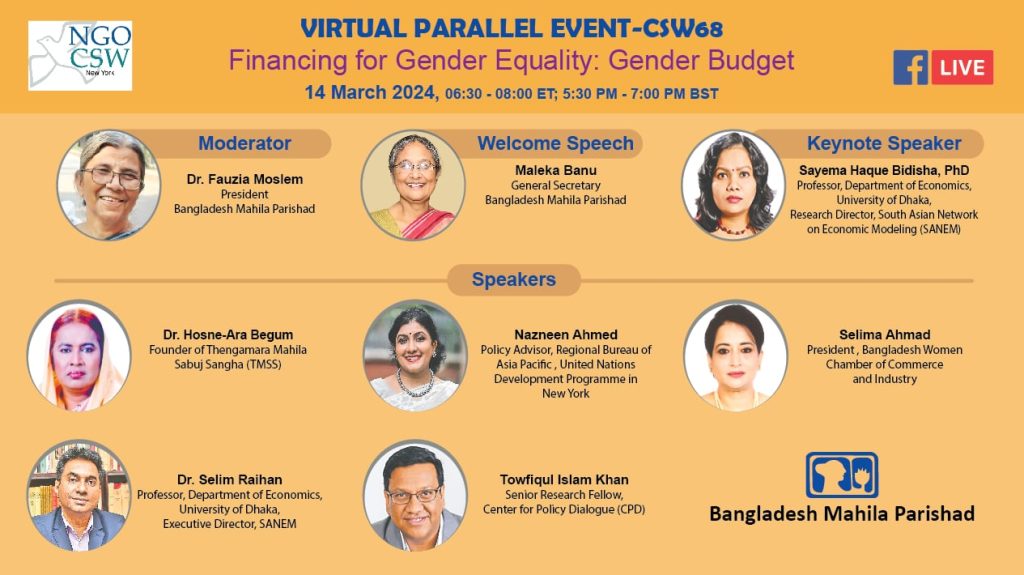
Selima Ahmad, Member of Parliament of 11th Bangladesh National Parliament, Member of Parliament Nominee by Bangladesh Awami League in 12th National Parliament Election, President of the Bangladesh Women Chamber of Commerce and Industry and Vice Chairperson of the Nitol-Niloy Group; Dr. Hosne Ara Begum, Founder of Thengamara Mohila Sabuj Sangha; Dr. Selim Raihan, Professor of Department of Economics at University of Dhaka and Executive Director of SANEM; and Nazneen Ahmed, Policy Advisor of Asia-Pacific Regional Bureau of the United Nations Development Programme in New York and Towfiqul Islam Khan, Senior Research Fellow of Center for Policy Dialogue also joined the meeting as speaker.
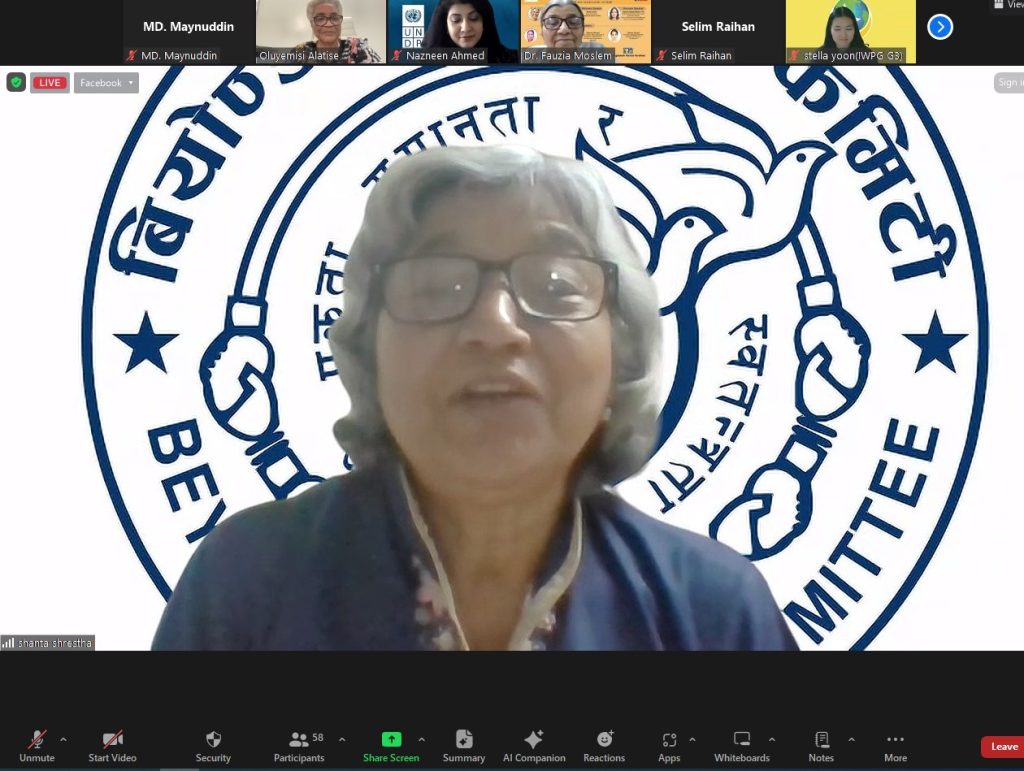
In the welcome speech, Maleka Banu stated, still now a significant gender gap is existing in the development process, despite having gender-responsive policies and laws according to Bangladesh’s Constitution. Women’s movement in Bangladesh is concerned regarding this issue. To accelerate women’s advancement, she highlighted the necessity of gender-responsive budgeting on specific allocation, implementation, and monitoring of budgets, as well as creating gender-disaggregated data. For effective implementation of gender-responsive budgeting to sustain women’s progress, she emphasized the necessity of building strong advocacy with the government through the initiatives of women’s movements.
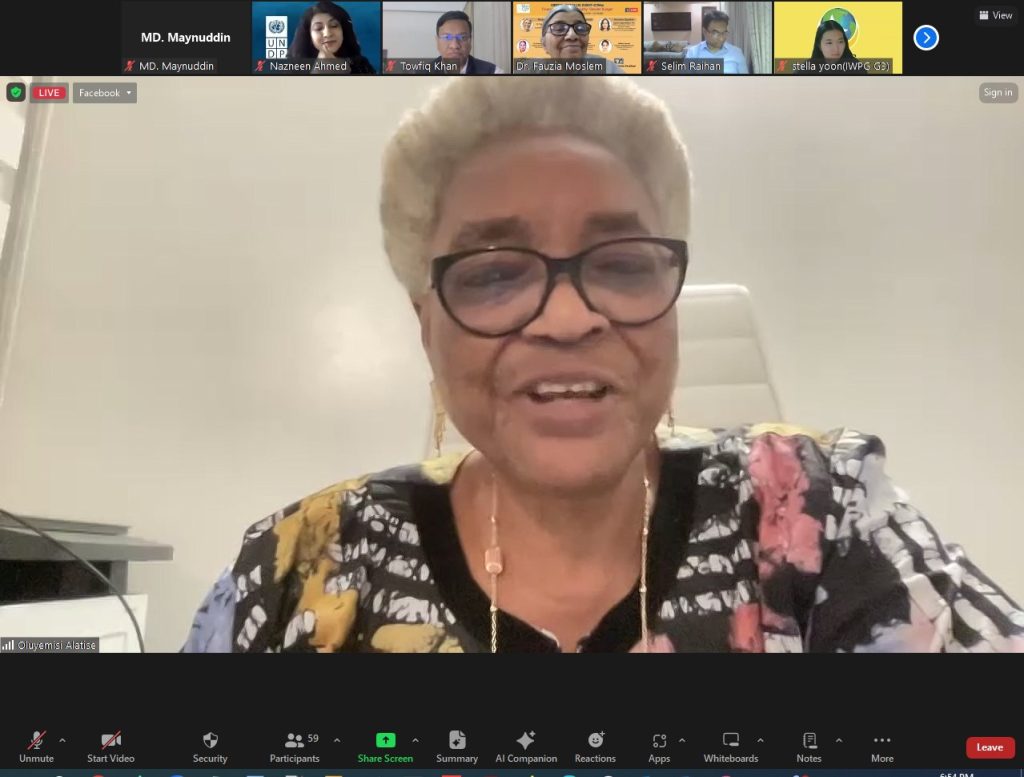
In the keynote paper, Sayema Haque Bidisha discussed in the context of Bangladesh, ‘Gender-responsive budget can help reduce the gender gap’ in contrast to the prevailing patriarchal attitudes and the backward position of women in terms of different based on this notion, since the fiscal year 2010, Bangladesh Government has started analyzing the national budget through gender lens and has been presenting a gender budget report annually. Numerically, over time, the gender-responsive budget ratio for Bangladesh has increased consistently and increased from 24.65% of the total budget allocation in 2009-2010 to 34.37% in 2023-2024. The keynote paper recommended an effective gender-focused monitoring and evaluation of public expenditure, development projects that are directly aligned with the SDGs need to be selected, supporting the private sector through financial incentives, promoting gender-sensitive workplaces and service delivery systems, and effective resource allocation, etc. It also focuses on the policies needed to bridge the gender gap in the context of Bangladesh, as well as budget allocations to address broader challenges such as child marriage, unpaid care work, gender-based violence, etc.
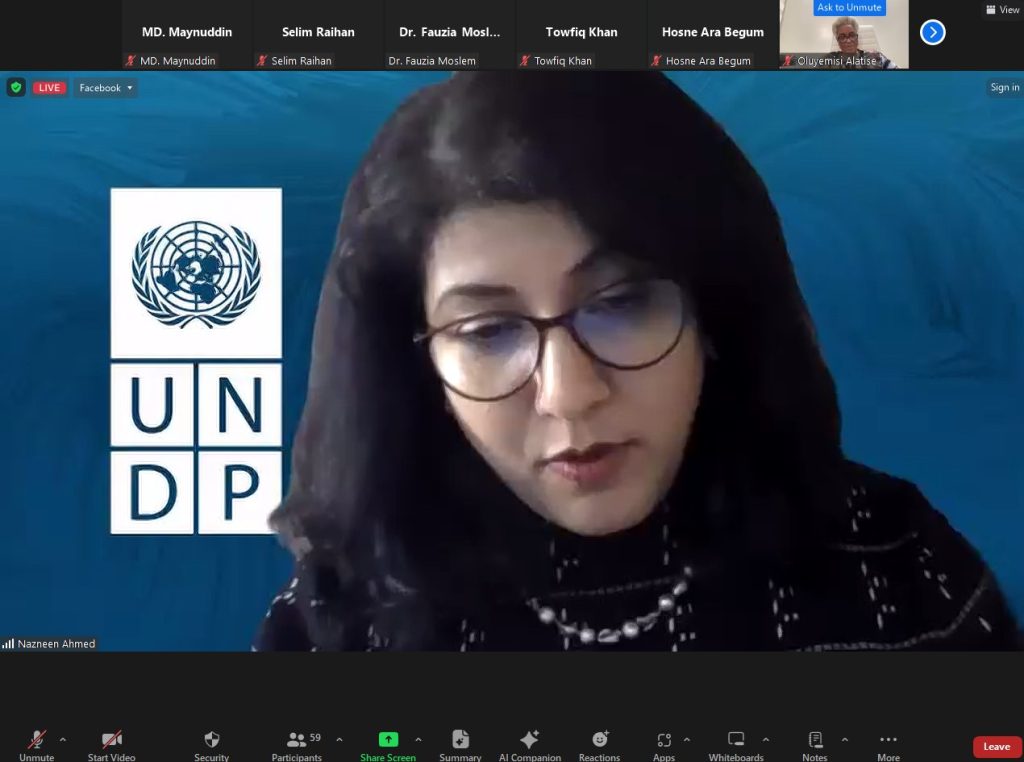
Other speakers of the event stated that Gender Budgeting should be considered as one of the most important tools for establishing gender equality; here government and non-governmental organizations are working jointly. Through using gender lens, the scope of budget allocation should be increased for marginalized groups, the care economy, and women working in the garment sector with emphasis on workplace safety, emphasis should be given on institutionalization and the area of taxation needs to be refined.
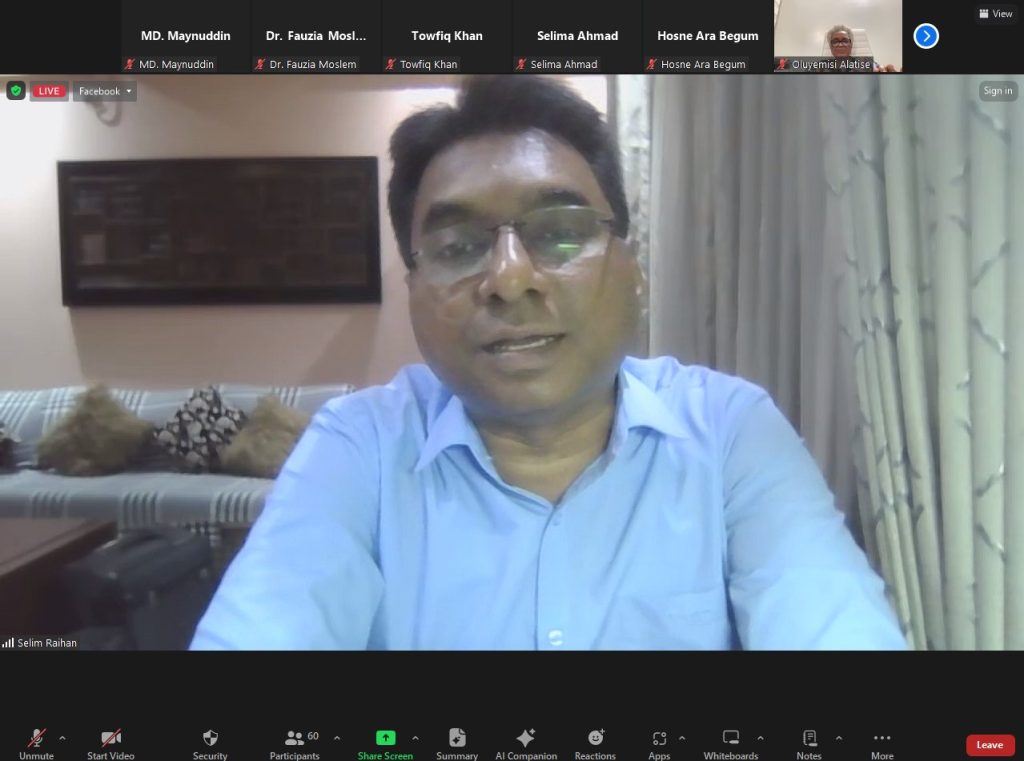
As moderator, Dr.Fauzia Moslem has given emphasis on having financial policies and institutional management and its implementation to reduce the gender gap.
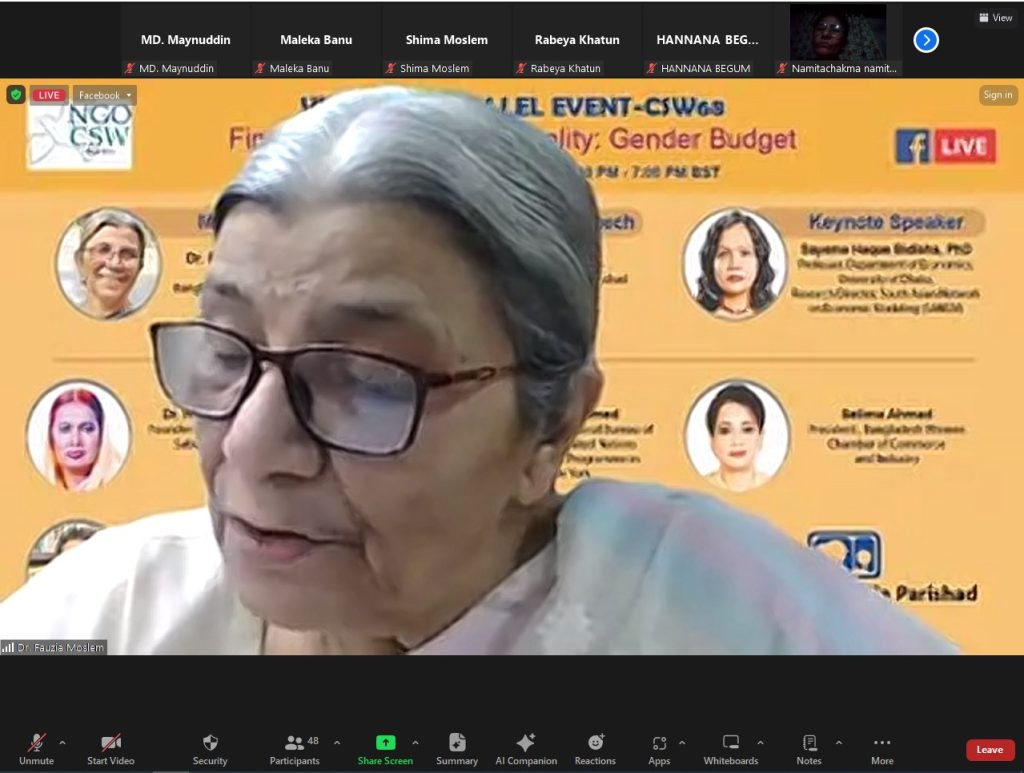
Representatives from the International Council of Women, IWPG, global women’s movement network, development organizations, social action committees, leaders, and employees of the Bangladesh Mahila Parishad were present at the CSW 68 online parallel event.
